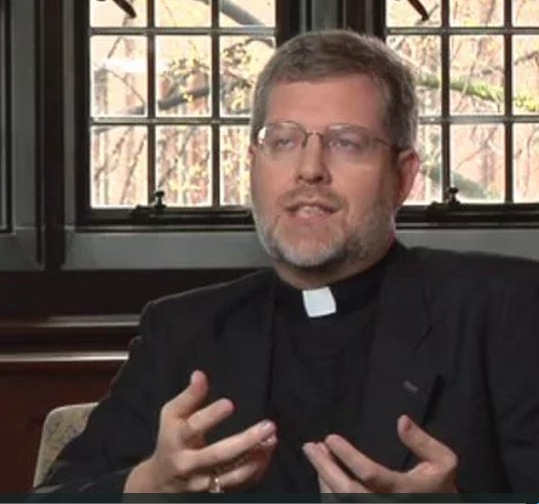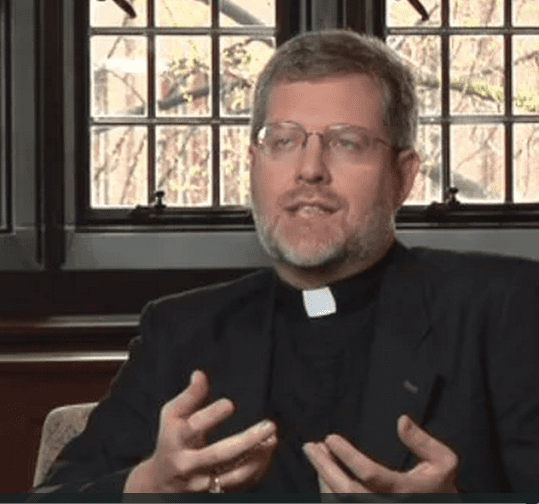DePaul President Dennis Holtschneider on important steps for the US Church
 As the American Bishops prepare to meet DePaul University President Dennis Holtschneider, CM offers some food for thought on some important steps for the United States church. The article appeared in America magazine under the title of Eight chances to strengthen the Church in America.
As the American Bishops prepare to meet DePaul University President Dennis Holtschneider, CM offers some food for thought on some important steps for the United States church. The article appeared in America magazine under the title of Eight chances to strengthen the Church in America.
He writes
This November, the U.S. Conference of Catholic Bishops will set forth a new strategic plan. The notion of a unified national bishops’ conference addressing major issues is complicated, of course, because bishops remain independent actors in their own dioceses. Still, all organizations can be strengthened if they set clear goals and aggressively implement them. If the conference were to adopt some collective, achievable and useful strategic goals, what might those include? It is a thought experiment, to be sure, but here is a first attempt.
Develop 21st-century religious education tools. Ask any Catholic college president: our Catholic students arrive unable to list the seven sacraments. The students are reasonably confident that their Catholicism requires them to live a good life, perform public service, be charitable when asked and attend Sunday Mass with at least some regularity. They like the pope. But basic doctrine? Church organization? Our history? Nope. Methods of prayer? Catholic social teaching? Varieties of religious expression, from monasticism to charismatic? No again.
The truth is, our present methods of providing religious education fall short, and everyone knows it. We could, if we decided, develop powerful educational tools to enrich students’ knowledge and learning about their faith. Parishes could use those tools. Parents could homeschool with those tools. Catholics—from pre-school-age children to adults—would seek them out because they could be engaging and conveniently available in formats they desire and use.
Catholic publishers have made starts on this front, but every other sector of education seems to have more advanced online tools. If seed-funded by Catholic foundations and coordinated with Catholic publishers, the church in the United States could create something truly educational, sophisticated and even self-funding. If the bishops’ conference pulled everyone to the table, it could be a game changer.
Improve preaching. A study of former Catholic parishioners in Trenton, N.J., published in America(“Why They Left,” 4/30/12), identified poor preaching as the single most common complaint of Catholics who stopped attending church. And yet the solution is a relatively easy fix. The bishops should require eight semesters of preaching training—one each semester in the four-year seminary curriculum. That is what was required in my seminary. We were required to speak without notes from the first day and to view video recordings of ourselves with faculty feedback after every attempt. Eight semesters of feedback will raise the quality of preaching.
But then there is the matter of vacuous preaching. One does not always expect hard-earned wisdom from the newly ordained, but over time it is fair to expect real spiritual wisdom from one’s priest: insightful, soul-searing knowledge that recognizes the struggles within, gives language to them and shows one the growth opportunity that may be available in a faith context. One could hope that develops with experience, but that is not always the case. Years ago, feedback came mostly from the older pastor with whom young priests lived and worked. Young priests do not live with older pastors for very long anymore, though, and the feedback loop needs a new model. The conference could help provide some basic structure for ongoing feedback on preaching.
An outline of his other points…
Strengthen ministry. While the bishops’ conference debates the future of ministry and how to provide sufficient numbers of ordained clergy, it would do well to improve the working conditions of the ministers already active.
Make Catholics proud. U.S. Catholics are proud of Pope Francis, but how about their U.S. church? Do they know that one out of six Americans get their health care from a Catholic institution, or that more than one out of five Americans living in poverty are served by Catholic Charities? Do they know Catholic schools are the largest provider of private K-to-12 education in the country, with almost two million students, and the largest provider of private higher education, enrolling nearly one million students? Or that the national Catholic school graduation rate is 99.4 percent of high school students? And that of these graduates, 84.9 percent go on to college, compared with 39.5 percent of public school graduates?
Do they know that the Catholic Church is the largest resettler of refugees in the country? That U.S.-based Catholic Relief Services serves nearly 100 million people in need in 93 countries? That the Society of St. Vincent de Paul serves over 14 million people in need in the United States each year?
The Catholic Church is the most important nongovernmental source of social good in the nation, and almost no one knows it. Honestly, the bishops’ conference need not do a thing but begin a more effective public relations campaign. It is time to show ourselves to ourselves—and to the nation—and build some pride.
Adopt good business practices.
Fund theological education.
Rebuild political capital.
Restructure the U.S.C.C.B.
Several of these larger ideas require funding, but my experience is that the easiest money to raise is for ambitious and important ideas. In the end, the point is a simple one. A few ambitious strategies and a bit of restructuring could make the bishops, and the church in the United States, more efficient and effective.
Dennis H. Holtschneider, C.M., president of DePaul University and chair of Ascension Health, lectures on strategy at the Harvard Graduate School of Education’s Management Development Program.
Tags: Holtschneider







0 Comments